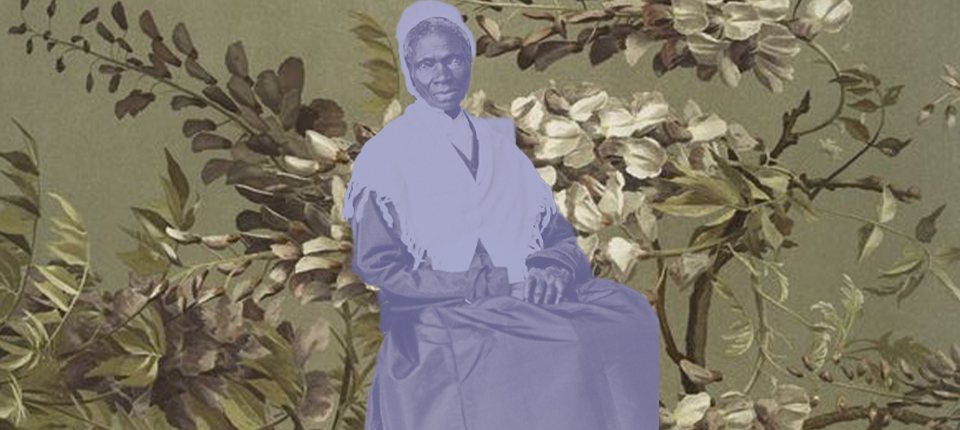TODAY: In 1851, Sojourner Truth’s “Ain’t I a Woman” is published in the Anti-Slavery Bugle.
- Lee Cole recalls being a working class writer attending a prestigious MFA program and considers the absence of working class perspectives in our literary institutions. | Lit Hub Craft
- “Book ban cases have ramped up in recent years, and judges are flying blind, continuing to make guidance-free rulings.” Why Little v. Llano County threatens the already imperiled freedom to read in America. | Lit Hub Politics
- “Her presence alone can transform a song into a drama.” Jan Gradvall sits down with ABBA’s iconic lead singer, Agnetha Fältskog. | Lit Hub Music
- Ira Wells on the emergence of a modern book censorship movement in Pensacola, Florida: “Many board positions were not hotly contested, and almost anyone could show up at a school board meeting and command their five minutes of airtime.” | Lit Hub Libraries
- “The enormity of climate change generates a conceptual boundlessness that can outstrip any single writer’s capacity for inventiveness.” Keith Woodhouse considers the future of climate fiction. | Public Books
- (Doctor-writer) Danielle Ofri explores the long tradition of doctor-writers. | The New Yorker
- The apocalyptic relevance of C.F. Ramuz’s Into the Sun after a century. | 3:AM
- Aaron Rosenberg revisits The Inheritors, an obscure sci-fi novel co-written by Joseph Conrad and Ford Madox Ford, which presaged Trump’s obsession with Greenland. | Jacobin
- “It is a survival tool, a place of fantasy, a report on reality, and a utopia, all in one.” David Grundy explores Ted Joans’ revolutionary, surrealist poetry. | Poetry
- Merve Emre looks at the history of advice columns: “More than any other genre of public speech, advice brings strangers into scenes of intimate exchange.” | The New Yorker
- “Offense has become so large and so accepted a part of our response to art that it can sometimes seem we’ve endowed it with unimpeachable authority.” Garth Greenwell on reading through bad feelings. | The Yale Review
- “For others, however, the old-fashioned, ideal sort of reading—intense, extended, beginning-to-end encounters with carefully crafted texts—has become almost anachronistic.” Joshua Rothman on what reading has become in the age of AI. | The New Yorker
- And on top of everything else, the semicolon is in decline. | Smithsonian Magazine
- “Few have cared so deeply for the poor or taken the quest to both know and live out truth more seriously.” Ben Woollard on Tolstoy’s Christian anarchism. | JSTOR Daily
- “If we value the medicine the land offers us so generously, we must become medicine for the land.” Robin Wall Kimmerer explores the precious forest pharmacy of the Adirondacks. | Orion
- Authors are taking to TikTok to prove they aren’t using generative AI. | Wired
Also on Lit Hub:
The Fact Checker and the business of truth • Why John le Carré’s work is more relevant than ever • The life and death of Agrippina the Younger • Writing queer historical fiction and seeing yourself in the past • Books that capture the expansiveness of queer love • The real woman behind André Breton’s Nadja • How monks preserved classical culture • Why Robert P. Baird embraced the humanities • This week’s new books! • Edna O’Brien’s sexiest novel • On teaching Lois-Ann Yamanaka’s Blu’s Hanging • Grace Flahive recommends essential Floridian books • Writing a decade-spanning California family drama • Michelle Tea shares her favorite queer books • America’s enduring obsession with The Wizard of Oz • The expansive possibilities of the short story • Kelly Ramsey’s early days with the US Forest Service • How did a fraudulent carpet dupe the art world for decades? • Seven books you need to read (about reading) • One summer in rural Newfoundland • A close and highly critical reading of English PEN’s charter • Advice on going on a book tour • How Charles Dickens, George Eliot, and more chose pen names • Catherine Lacey’s TBR • 5 book reviews you need to read this week • Sapphic books that explore hydrofeminism • How Edna Lewis became a queer icon of Southern cooking • The literary legacy of Nandshankar Mehta • The best reviewed books of the week • The importance of women who take up space
